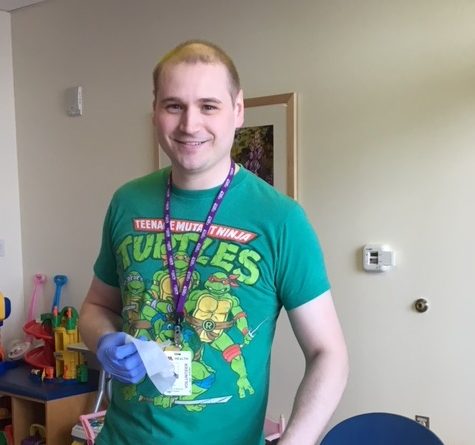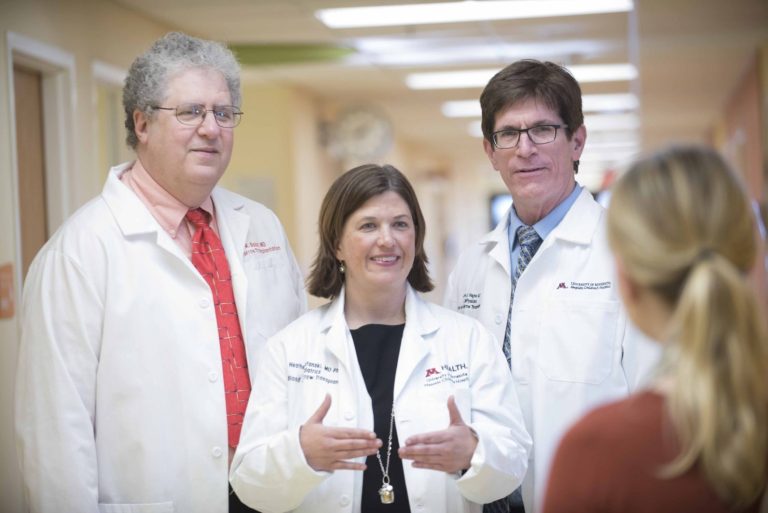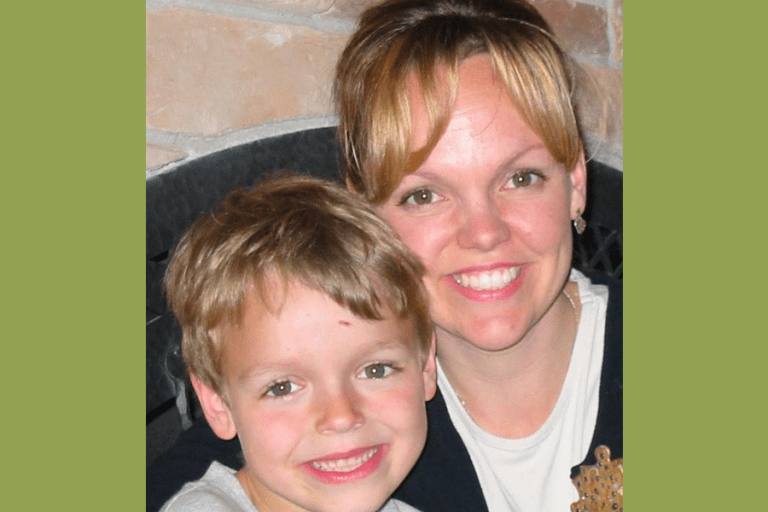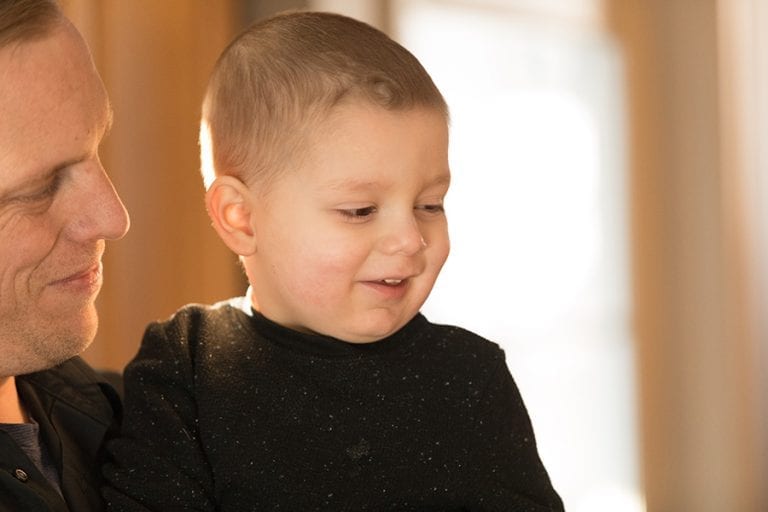Dustin Hron is a Care Partners volunteer in the bone marrow transplant unit at the University of Minnesota Masonic Children’s Hospital. A neuroblastoma survivor himself, he has personal experience with what families in the hospital go through during difficult treatments. He uses his understanding of what parents are going through to bring a bright spot into their day. Here’s what Dustin had to say about volunteering with Care Partners.
What drew you to start volunteering for Care Partners?
I’ve learned from a young age that volunteering in any way was not only helpful for my community, but also helps enrich my own life. So when I saw that my employer donated to Children’s Cancer Research Fund, I decided to look for a way I could help out. I’ve always said that when I have time, I’ll donate my time and when I have money, I’ll donate my money. Right now, I have more time, so using it to volunteer was important to me.
What does a day of volunteering look like for you?
Any different day can vary, but usually I am lucky enough to be with a patient for my entire shift. I can be doing anything from watching or holding an infant, playing and singing with a toddler, coloring or reading with a younger child, playing video games with teenagers or sometimes just talking.
Do you have a personal reason for wanting to volunteer with Care Partners?
I’m a neuroblastoma survivor. Luckily, my cancer was gone before I was old enough to remember anything, but because of my time at regular check-ups over the years I’ve noticed how some of the little things can make a difference for families. I talk with my family a lot about what it was like for them when I was in treatment and how important it is to have a good support structure. Volunteering allows me to be a little part of that support structure for other families.
Does your experience as a survivor impact how you interact with families in the hospital?
I always say that my cancer was not my battle – I was a baby. I don’t remember it, I made zero decisions. Thankfully, some of these kids are young enough that they’ll never remember what they’re going through now, but their parents will. I feel like a lot of what I do is for the parents and caretakers. I know how much they need a break, even if it’s just to go throw in some laundry or leave the room to call a family member who can’t be there.
Does volunteering ever get difficult for you, since the families you are with are going through such a difficult time?
The hardest part about volunteering is saying goodbye. Of course, you know they don’t want to be in the hospital, and you want them to get better. But that means they will leave, and you won’t get to hang out with them anymore. The positive, though, is that parents and caretakers are so appreciative of volunteers so there’s no shortage of opportunities to make a difference with a patient or parent.
What’s one piece of advice you would give to other people who work with childhood cancer patients?
Patience and communication go a long way. That can be said for any interaction with people, but especially anyone who is stressed and in a hospital. I always try to put myself in their shoes and take care of the child as if they were my own.
What would you tell someone who is considering volunteering for Care Partners?
Just jump in. Care Partners does a great job training people of all ages and backgrounds to be caring, effective volunteers. Know that there are some things you’ll do well, and others not so well and that’s ok. You being there and taking time to care for another person means the world to someone.
Become a Care Partners Volunteer
Care Partners volunteers provide nonmedical support to families receiving care at the University of Minnesota Masonic Children’s Hospital. Learn more about how you can become a Care Partners volunteer.




